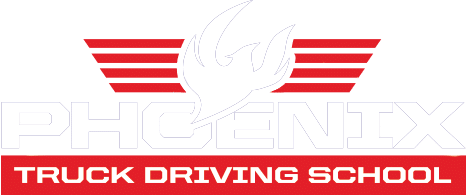Thinking about a career in truck driving? You might have heard some things about truck driving training that aren’t quite accurate. Let’s dive into what truck driving training is like and debunk a few common myths along the way.
Myth 1: Truck Driving Training is Too Expensive
Reality: Yes, there are costs involved in truck driving training, but it’s more like an investment in your future. Many truck driving schools offer financial assistance options, like scholarships or help finding a job that will cover the training costs. Plus, once you’re trained, you can earn a good living as a truck driver.
Myth 2: Truck Driving Jobs Don’t Lead Anywhere
Reality: Contrary to popular belief, there are plenty of opportunities for advancement in truck driving. With experience and additional training, you can specialize in different types of driving, like long-haul trips or transporting special cargo. Some drivers even move into management roles at trucking companies.
Myth 3: Truck Driving is Isolating and Lonely
Reality: While it’s true that truck drivers spend a lot of time alone on the road, there are ways to stay connected. Many trucks are equipped with amenities like radios and Bluetooth, so you can stay in touch with loved ones while you’re driving. Plus, there are online communities and events where truck drivers can connect and support each other.
Myth 4: Truck Driving is Dangerous
Reality: Every job has its risks, but the trucking industry works hard to keep drivers safe. Trucking companies provide thorough training on safety protocols and use technology to help prevent accidents. By following safety guidelines, truck drivers can have a safe and successful career.
Myth 5: Truck Driving Training Takes Too Long
Reality: While it’s true that truck driving training requires a commitment of time and effort, the duration can vary depending on the program. Many truck driving schools offer accelerated courses that can be completed in a matter of weeks, allowing you to get on the road and start earning sooner. Additionally, some programs offer flexible scheduling options, making it easier to balance training with other responsibilities.
Myth 6: Truck Driving Is a Last Resort Career
Reality: Truck driving is often portrayed as a career option for those who couldn’t find success elsewhere. However, this couldn’t be further from the truth. Truck driving offers a stable income, job security, and opportunities for growth and advancement. With the increasing demand for goods transportation, the need for skilled commercial truck drivers continues to rise. Whether you’re just starting your career or looking for a change, truck driving can be a rewarding and fulfilling profession.
Myth 7: Anyone Can Be a Truck Driver
Reality: While truck driving might seem straightforward, it requires skill and training to do it well. Truck driving training programs cover everything from driving techniques to road regulations. You also need to obtain a commercial driver’s license (CDL) to legally drive a truck. With the right training and license, anyone can become a successful truck driver.
Start Your Truck Driving Journey with Phoenix Truck Driving School
Debunking truck driving myths highlights the opportunities awaiting you in this rewarding career. At Phoenix Truck Driving School, our top-notch training, experienced instructors, and comprehensive programs prepare you for success on the road.
Don’t let common misconceptions hold you back — enroll today and start your journey toward a fulfilling career behind the wheel!















